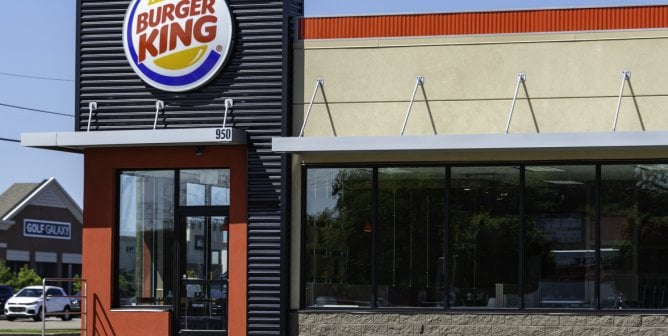Before You Buy Rotisserie Chicken, Consider These Facts
Rotisserie chicken comes at a huge cost to chickens, slaughterhouse workers, human health, and the environment. An estimated 1 billion chickens are killed each year and made into the rotisserie chickens that you see in supermarkets. These birds are raised on massive farms, where they live out their short lives in cramped, filthy conditions. So, next time you’re looking at these chicken carcasses in the grocery store, consider these facts before putting one in your cart:
1. Vegan Food Is Better for Meal Prepping
You can get 2-pound bags of dried beans for less than $2 each and just as much brown rice for around the same price. Make a big batch of both and you’ll have healthy, filling meals that will yield around 20 servings. Even with seasonings, salsa, and veggies, your total for all these meals will be less expensive than even just one rotisserie chicken. These bean-and-rice bowls are just one example—there are plenty of other satisfying vegan meal prep ideas.
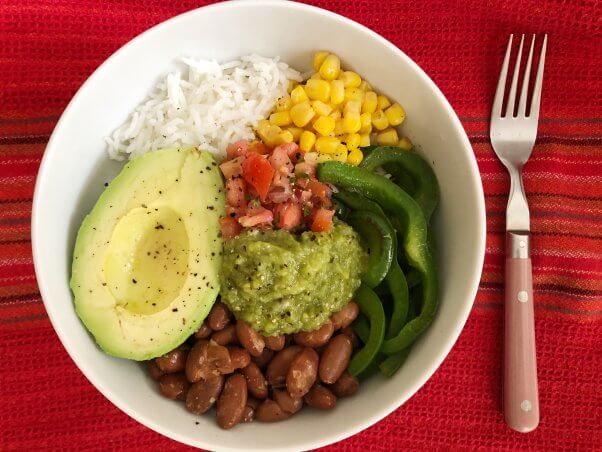
2. Quick, Easy Vegan Meals Are Accessible
If you’re short on time, there are plenty of quick and convenient vegan options that you can find in the grocery store—just look in the frozen section. Costco and Trader Joe’s have plenty of frozen and prepared meals, and many meal delivery services offer vegan options, taking the pressure of planning off your shoulders.
3. Chickens Deserve Your Consideration and Compassion
Chickens raised and killed for food don’t get to experience anything that’s natural and important to them, like enjoying the sunlight or establishing social structures. Some are never even allowed to have contact with their mothers—as soon as hens lay their eggs, hatchery workers place them in large incubators. In a natural setting, a hen would create a safe, private nest to tend to her eggs, clucking to the chicks in their shells before they even hatch.
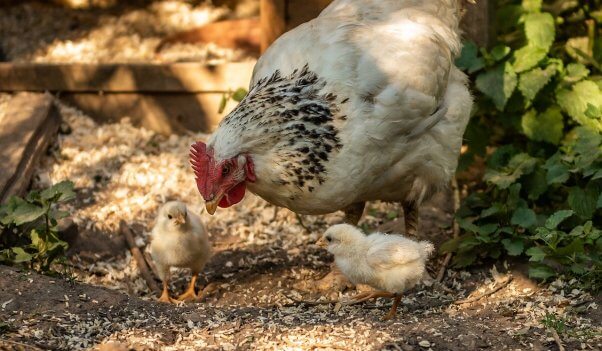
4. Babies Are Killed for Rotisserie Chicken
Most birds raised for food are slaughtered when they’re only 5 to 7 weeks old. This is just a fraction of the natural life expectancy of the average bird, which can be anywhere from 5 to 10 years. They’re often killed before they reach maturity, which means they’re still babies when their throats are slit.
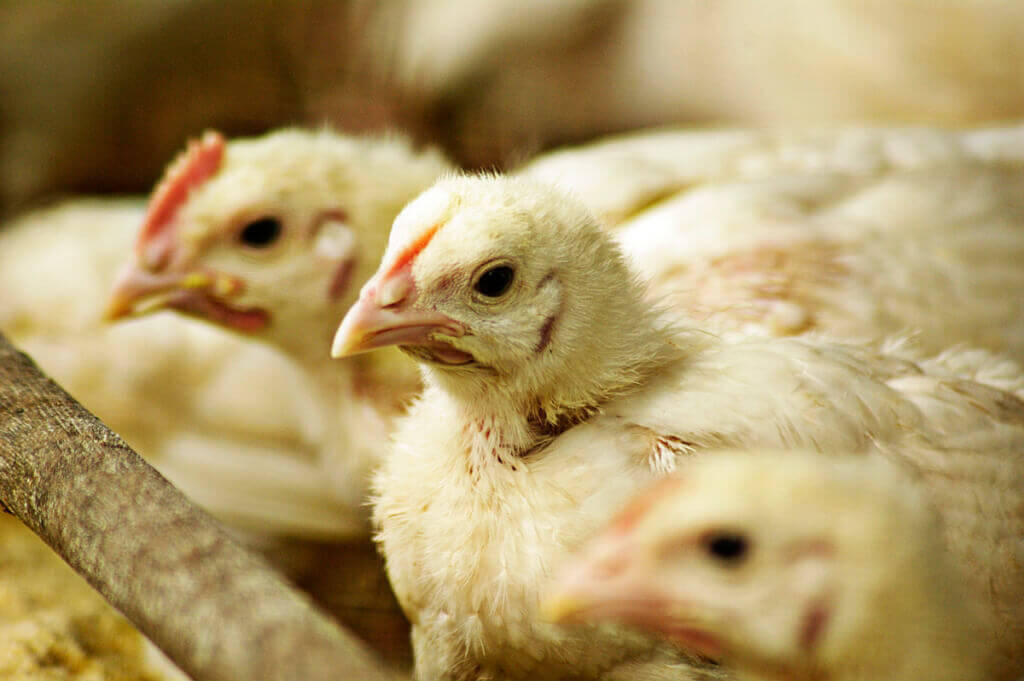
5. No Regulations Govern the Slaughter of Birds
Since birds are exempt from the Humane Slaughter Act, there’s no federal legal protection requiring that chickens be sedated before they’re killed. Almost all chickens are still conscious when their throats are cut, and many are scalded to death after missing the throat-cutter altogether and being immersed in boiling water to remove their feathers.
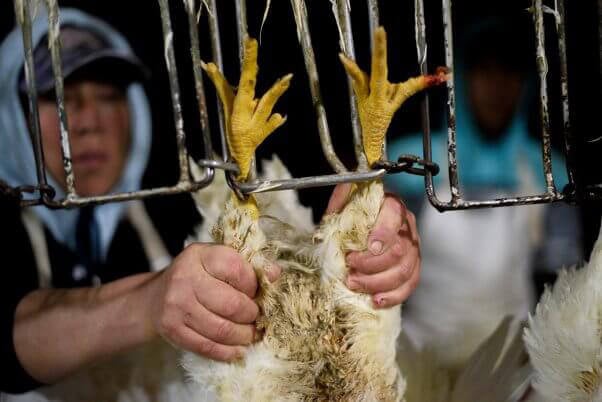
6. Chickens Who End Up in Your Grocery Store Are Bred to Be Too Big
Chickens raised for food are bred and drugged to grow so large so quickly that their legs and organs can’t keep up. At 6 weeks old, many are so big that their legs can’t support them and they are unable to walk.
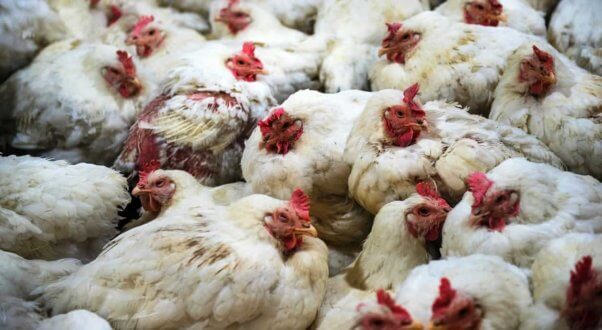
7. The Chicken Industry Is Damaging the Environment
An industry that raises 9 billion animals for meat every year is bound to create a ton of waste. Antibiotics and chemicals that chickens are fed end up in their feces, which pollutes the land and waterways near the farms.

8. Slaughterhouse Workers Also Suffer
Working in a slaughterhouse is one of the most dangerous jobs—many slaughterhouse employees end up with serious injuries or become sick because of unsafe and unsanitary working conditions. They’re forced to work quickly with dangerous equipment, which makes injuries more common and also increases the suffering of the animals.
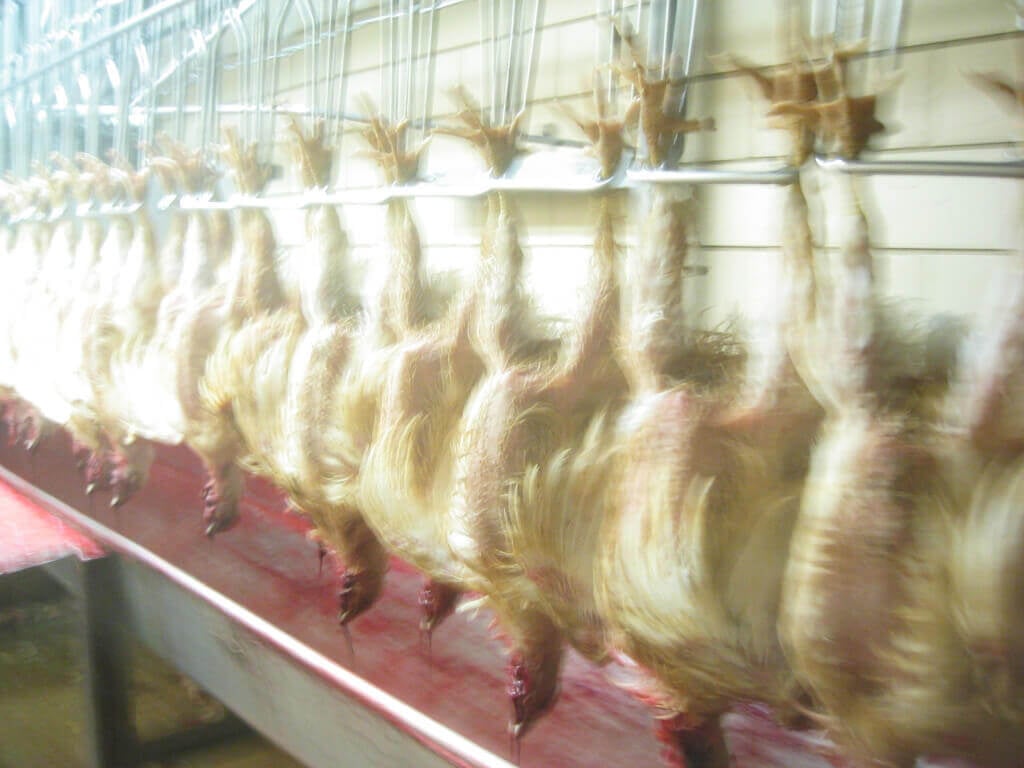
9. Rotisserie Chicken Isn’t Healthy
Of the broiler chicken carcasses sold in the U.S., 99% have detectable levels of E. coli, which means that you’re likely ingesting poop every time you eat chicken—plus, chickens are pumped full of antibiotics and drugs to keep them alive in conditions that would otherwise kill them. This leads to antibiotic-resistant bacteria that result in the spread of untreatable illnesses.
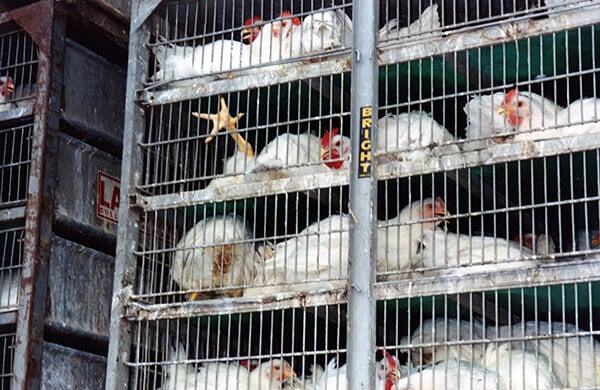
10. Vegan Chicken Is All the Rage
Vegan chicken options abound in grocery stores and restaurants, so it’s easier than ever to satisfy your cravings. Many brands even sell vegan chicken nuggets and chicken wings. These are all compassionate choices that help make a difference in the lives of the most abused animals on the planet.
Wondering How Else You Can Help Chickens?
Why not make it official and go vegan? Each person who goes vegan saves the lives of more than 200 animals a year—plus, it’s better for the environment and your own health.


